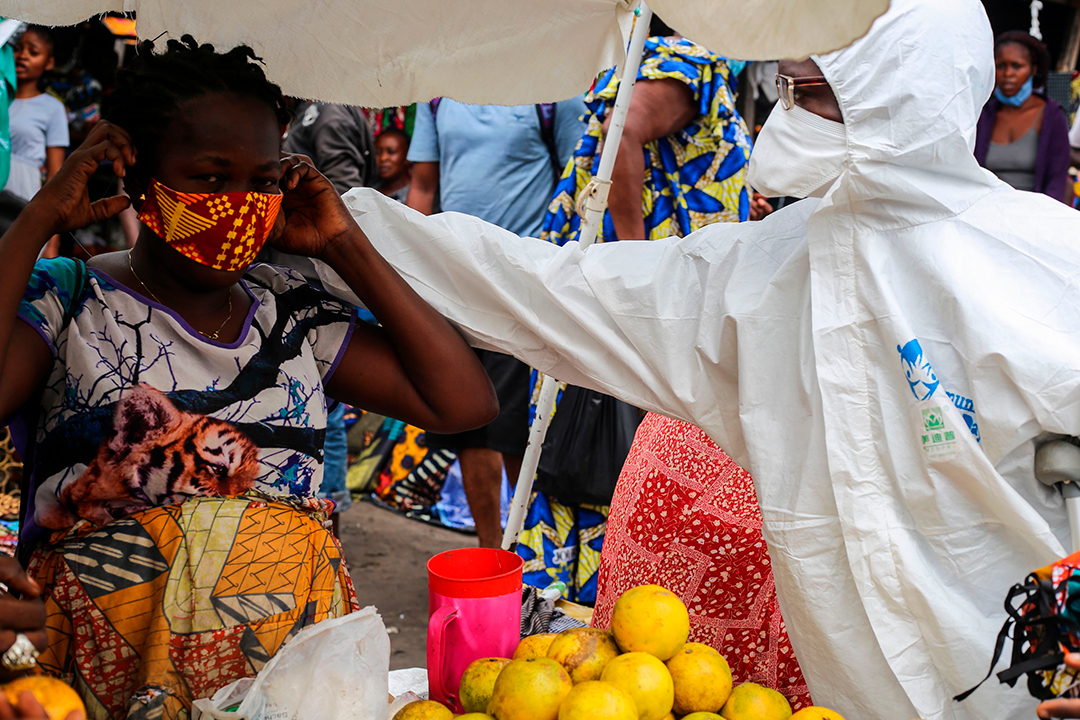ADF STAFF
The U.S. Centers for Disease Control and Prevention (U.S. CDC) has added $3 million to the United States’ growing support for fighting the spread of COVID-19 in the Democratic Republic of the Congo (DRC).
The U.S. CDC funding brings to $17.4 million the total U.S. contribution toward preventing the spread of the virus among the Congolese population.
Between March and June 24, 2020, the DRC reported more than 6,200 cases of COVID-19, according to the Africa Centres for Disease Control and Prevention. The World Health Organization said the vast majority were in the capital, Kinshasa. At the same time, however, the country is dealing with Ebola and measles outbreaks.
The new round of funding — part of $300 million it has budgeted worldwide to battle the pandemic — supports rapid-response teams and disease surveillance, prepares health facilities to prevent infections in health care workers, and provides technical support for laboratories.
DRC health officials also are battling the stigma of surviving COVID-19, which may make people fearful to visit hospitals.
“There’s the stigma, when you know it’s COVID, you’re stigmatized,” Dieunit Kanyinda, a COVID-19 survivor, told africanews.net. “My children were nicknamed COVID in the neighborhood. They’re called ‘corona.’ That’s the kind of behavior that drives people into hiding.”
At the same time, people already suffering from malaria, HIV, diabetes and other illnesses that can make them more vulnerable to COVID-19 also are shunning care for fear of being infected in the hospital, according to Medecins Sans Frontieres’ mission in the DRC.
As a result, many vulnerable people are becoming infected and coming in for care only after the disease has progressed.
“Delaying seeing a doctor can have harmful consequences,” Dr. Rany Mbayumbu of Midushi Liboke Hospital told MSF. “Most of our patients arrive at an advanced stage of the disease.”
Protecting those with HIV and other vulnerable populations is a key component of U.S. financial support for the DRC’s anti-COVID-19 efforts, according to the U.S. Embassy in Kinshasa.
In addition to the new U.S. CDC funding, the U.S. Agency for International Development also has contributed $1.5 million to help establish the new Institut National de Recherche Biomedicale lab that will be able to do rapid diagnostic testing for a variety of diseases in eastern DRC.
U.S. Ambassador Mike Hammer in May presented Hospital Saint Joseph and other hospitals with patient monitoring equipment, sterilization devices, hand-washing stations and infrared thermometers.
The U.S. also has brought experts from the U.S. CDC to work in Kinshasa and help laboratories and the DRC’s National Response Committee. The U.S. CDC recently trained 300 Congolese epidemiologists on how to handle COVID-19 responsibilities.


Comments are closed.